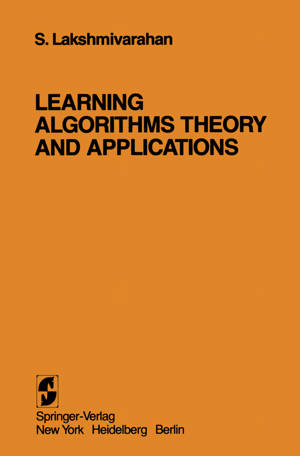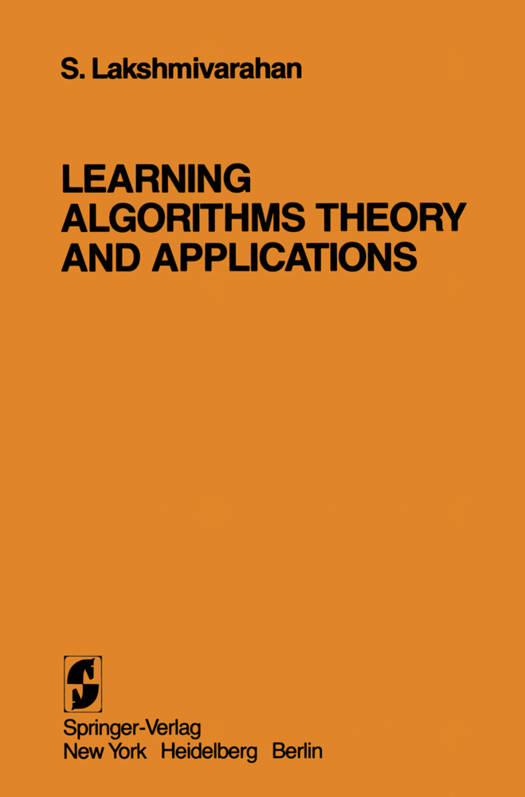
- Afhalen na 1 uur in een winkel met voorraad
- Gratis thuislevering in België vanaf € 30
- Ruim aanbod met 7 miljoen producten
- Afhalen na 1 uur in een winkel met voorraad
- Gratis thuislevering in België vanaf € 30
- Ruim aanbod met 7 miljoen producten
Zoeken
Learning Algorithms Theory and Applications
Theory and Applications
S Lakshmivarahan
Paperback | Engels
€ 83,95
+ 167 punten
Omschrijving
Learning constitutes one of the most important phase of the whole psychological processes and it is essential in many ways for the occurrence of necessary changes in the behavior of adjusting organisms. In a broad sense influence of prior behavior and its consequence upon subsequent behavior is usually accepted as a definition of learning. Till recently learning was regarded as the prerogative of living beings. But in the past few decades there have been attempts to construct learning machines or systems with considerable success. This book deals with a powerful class of learning algorithms that have been developed over the past two decades in the context of learning systems modelled by finite state probabilistic automaton. These algorithms are very simple iterative schemes. Mathematically these algorithms define two distinct classes of Markov processes with unit simplex (of suitable dimension) as its state space. The basic problem of learning is viewed as one of finding conditions on the algorithm such that the associated Markov process has prespecified asymptotic behavior. As a prerequisite a first course in analysis and stochastic processes would be an adequate preparation to pursue the development in various chapters.
Specificaties
Betrokkenen
- Auteur(s):
- Uitgeverij:
Inhoud
- Aantal bladzijden:
- 280
- Taal:
- Engels
Eigenschappen
- Productcode (EAN):
- 9780387906409
- Verschijningsdatum:
- 2/11/1981
- Uitvoering:
- Paperback
- Formaat:
- Trade paperback (VS)
- Afmetingen:
- 156 mm x 234 mm
- Gewicht:
- 421 g

Alleen bij Standaard Boekhandel
+ 167 punten op je klantenkaart van Standaard Boekhandel
Beoordelingen
We publiceren alleen reviews die voldoen aan de voorwaarden voor reviews. Bekijk onze voorwaarden voor reviews.











